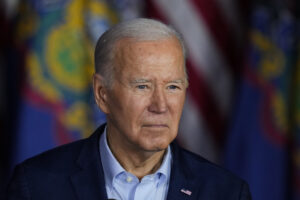Federal Judge Strikes Down Indefinite Detention Law
A temporary stop on the US military's power to imprison anyone deemed to have "substantially supported" terrorist groups was made permanent on Wednesday when U District Judge Katherine Forrest ruled that journalists could be snatched up under the law military's power to imprison anyone deemed to have "substantially supported" terrorist groups was made permanent on Wednesday.
A temporary stop on the U.S. military’s power to imprison anyone deemed to have “substantially supported” terrorist groups was made permanent on Wednesday when U.S. District Judge Katherine Forrest ruled that journalists could be snatched up under the law.
The ruling against a provision in the 2012 National Defense Authorization Act frustrates the government’s attempts to grant itself the ability to indefinitely detain anyone it could associate with terrorist activity, including domestic protesters.
Truthdig columnist Chris Hedges had sued the Obama administration over the provision, along with journalists, scholars and political activists Noam Chomsky, Daniel Ellsberg and Naomi Wolf. Judge Forrest placed a temporary injunction on the provision in Section 1021 of the law in May.
“This court does not disagree with the principle that the president has primacy in foreign affairs,” Forrest said in Wednesday’s ruling. But government arguments in favor of the provision were not convincing, she said.
“The government has not stated that such conduct — which, by analogy, covers any writing, journalistic and associational activities that involve al Qaeda, the Taliban or whomever is deemed “associated forces” — does not fall within § 1021(b)(2).”
— Posted by Alexander Reed Kelly.
Your support matters…Reuters:
The permanent injunction prevents the U.S. government from enforcing a portion of Section 1021 of the National Defense Authorization Act’s “Homeland Battlefield” provisions.
The opinion stems from a January lawsuit filed by former New York Times war correspondent and Pulitzer Prize winner Chris Hedges and others. The plaintiffs said they had no assurance that their writing and advocacy activities would not fall under the scope of the provision.
Government attorneys argued that the executive branch is entitled to latitude when it comes to cases of national security and that the law is neither too broad nor overly vague.
Independent journalism is under threat and overshadowed by heavily funded mainstream media.
You can help level the playing field. Become a member.
Your tax-deductible contribution keeps us digging beneath the headlines to give you thought-provoking, investigative reporting and analysis that unearths what's really happening- without compromise.
Give today to support our courageous, independent journalists.






You need to be a supporter to comment.
There are currently no responses to this article.
Be the first to respond.